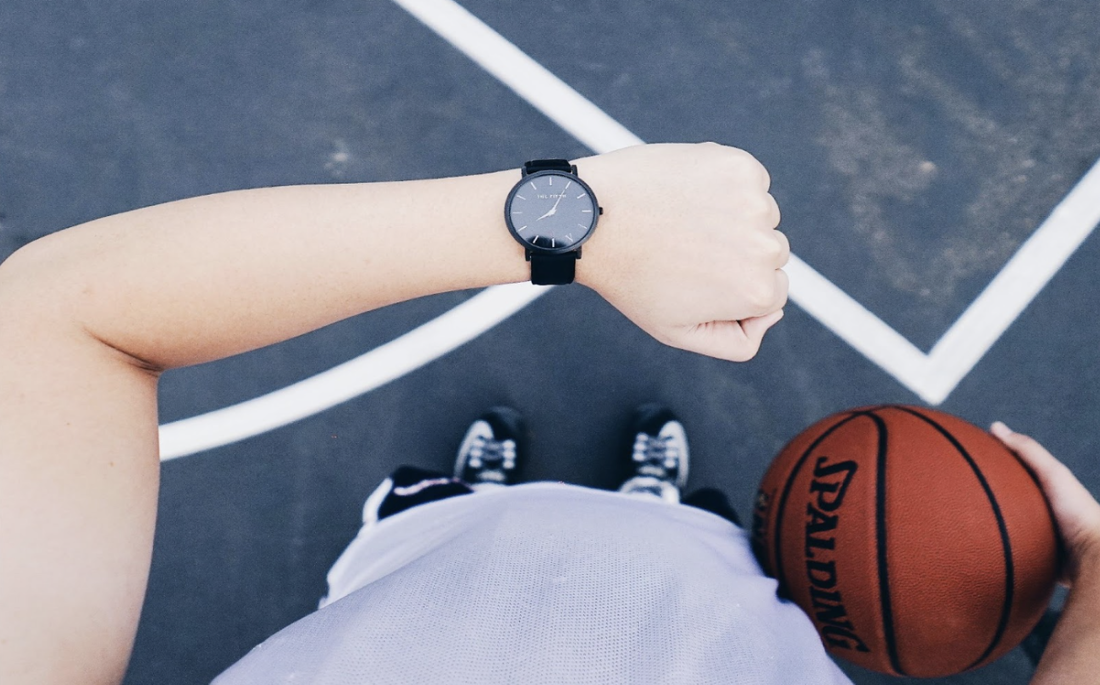|
By Caroline Roberts, EDC Intern Tip #1: Make Time For it Being a collegiate athlete means having a busy schedule. On top of having to go to class and spending lots of time in the library, you also have the obligation of attending team meetings, lifts, practice, and games. In a day filled with all of these commitments, it’s important to remember that you also have a commitment to yourself… a commitment to stay nourished and energized. So, the next time you’re planning your day out to the minute, it can be helpful to physically write down times throughout the day that are allotted for meals and snacks. If you want to be a successful student and athlete then you can’t dismiss the importance of a consistent eating schedule. Your body and brain are extremely active and stimulated throughout the day; they need energy in order to be successful and that comes in the form of food! Tip #2: Don’t Let the Dining Hall Discourage You Whether you’re not a fan of what is being served, or the hours of operation don’t align with your busy schedule, college dining halls can pose challenges to all students. But, don’t panic! If you’re not a fan of what your dining hall is serving on a particular day, there are usually solid options that remain constant aside from the changing menus. For instance, there’s likely to be some version of a cereal and bagel station at all times, along with a salad bar and sandwich station. These options can be helpful when you don’t like what’s being served or when you want a snack before your two hour evening practice. However, athletes should also remember that it is perfectly ok to eat foods like pizza, nuggets, and tacos. You are not restricted to only eating whatever society deems “healthy.” ALL foods can fit into a healthy diet (barring genuine allergies and medical conditions). The most important part about fueling your body as an athlete is making sure you get enough protein, carbs, fats, etc. so that your body can sustain its active lifestyle. Tip #3: Listen to Your Body As a collegiate athlete, you demand a lot of your body. Having multiple lifts, practices, and games in a week means that your body needs to be properly fueled. Adjusting to the lifestyle of a collegiate athlete may mean you’re hungrier than you’re used to. THAT IS OKAY! Listen to your body! If you’re still hungry after one serving of a meal, eat another serving! If you’ve already eaten 3 meals, but you’re hungry after your evening practice, then eat something else! When in doubt, listen to your body because it knows what it needs in order for you to be successful in your sport. It’s important to note that in early eating disorder recovery you might need to trust a treatment team in order to know what to eat as hunger and fullness cues may be off or not existent. Tip #4: Stand Up to the Toxic Internal and External Voices Misleading You Many athletes have a preconceived notion that they need to live a “healthier” lifestyle. However, living “healthier” can turn into “eating less” or “overexercising” if you’re not careful. Whether it’s social media, a member of your coaching staff, or your internal self that is painting a picture of what an athlete is “supposed to look like,” it’s important to try to find the strength to ignore that extremely false narrative. Every individual is different. Every individual looks different. Body diversity is real. These points remain just as true for athletes in particular. So, as hard as it may be, remind yourself that there is no perfect shape you have to be to be a successful athlete. If you are a collegiate athlete looking to better your relationship with food and/or body image, we can help! Our therapists and coaches would love to help support your healing journey. Schedule a free 15 min consult for eating disorder therapy in MD, VA, DC, NY, FL, or recovery coaching worldwide. Click here. The Eating Disorder Center is a premier outpatient eating disorder therapy center founded by Jennifer Rollin. We specialize in helping teens and adults struggling with anorexia, binge eating disorder, bulimia, OSFED, and body image issues. We provide eating disorder therapy in Rockville, MD, easily accessible to individuals in Potomac, North Potomac, Bethesda, Olney, Silver Spring, Germantown, and Washington D.C. We also provide eating disorder therapy in Arlington, Virginia and virtually throughout Virginia. Additionally, we offer eating disorder therapy virtually in New York (NYC), Florida, and California. We provide eating disorder recovery coaching via Zoom to people worldwide. Connect with us through our website at www.theeatingdisordercenter.com
Comments are closed.
|
The Eating Disorder CenterWe are a premier outpatient eating disorder therapy center in Rockville, Maryland. Archives
July 2024
Categories |

 RSS Feed
RSS Feed